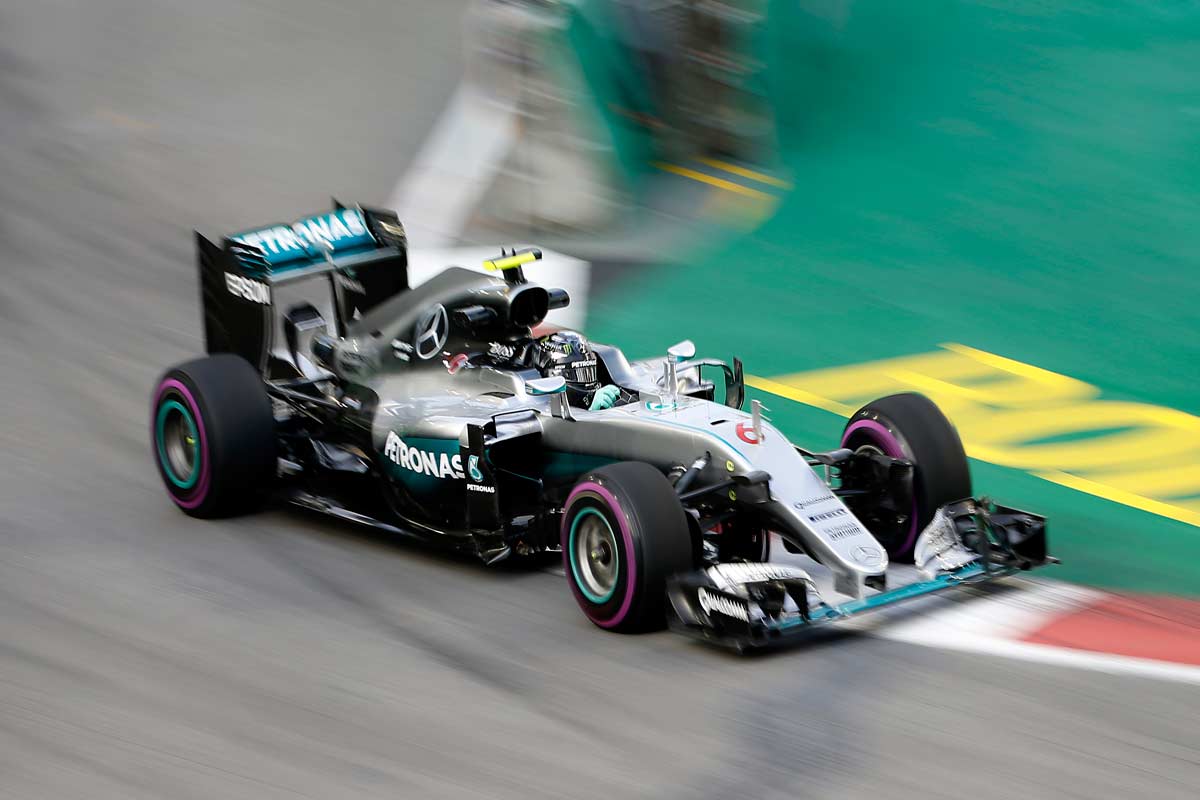SINGAPORE – Singapore Grand Prix rolls into town for its ninth edition this weekend, even as a major shake-up gets underway at Formula One.
The race in Singapore is the first since it was announced last week that the sport is being acquired by US media and entertainment group Liberty Media Corporation, in a deal which represents an enterprise value of US$8 billion (S$10 billion) and an equity value of US$4.4 billion.
Bernie Ecclestone, who earlier said he would skip the Singapore Grand Prix to tend to the negotiations over the deal, was spotted around the Paddock on Friday.
The Briton, who turns 86 next month, is expected to remain at the helm of the sport for the next three years, though the talk is that he may not last that long.
The sale comes at a time viewership of the sport has been falling, with its global audience reportedly slumping from 600 million annually in 2008 to about 400 million last year. But revenues have held steady; F1 made over US$1.8 billion last year.
Liberty Media, with its forte in promotion and marketing, is expected to boost F1’s reach through avenues such as the digital space – an area by and large neglected.
It is also expected to grow the US market and court younger audiences; its expertise in live events and digital monetisation are also seen as pluses.
Backed by US billionaire John Malone, the company has investments in outfits such as tour promoter Live Nation, the Atlanta Braves baseball team, TimeWarner and Viacom.
Industry observers thus see it as a better fit for growing the sport than outgoing substantial shareholder, private-equity firm CVC.
Speaking to The Business Times on Friday, team principal of Sauber, Monisha Kaltenborn, said: “Among the many areas that can be improved is the connection to the end-user, the fan. (Digital and social media) are important areas. That’s the way to reach young people today. How else can you get the young people today and make sure they come to a race tomorrow and pay for the ticket?”
She also raised the need to relax the rules governing the use of F1 content by the race teams to attract eyeballs. “The rights regime which we have is something we need to re-do, considering today’s media landscape.”
Kim Douglas, managing director of consultancy SapientNitro & Razorfish (South-east Asia), cited live streaming as one avenue to boost viewership; it will also enable F1 to enter new markets, since people watch sport on mobile platforms.
James Walton, head of the sports business service at Deloitte Singapore and South-east Asia, said that where the Singapore Grand Prix is concerned, the race venue may be able to leverage Liberty’s relationship to attract and promote more big-name acts: “The key for the Singapore Grand Prix is to continue to build on the track-side entertainment and activities to enhance the F1 experience, particularly to appeal to the local crowd, which may be experiencing fatigue after nine years.”
The deal with Liberty Media is expected to be sealed in the first quarter of next year, which happens to be the last year of Singapore’s current five-year contract.
Singapore Tourism Board director of sports Jean Ng said a decision has not yet been reached on whether Singapore will stay on the race calendar after 2017.
The event has boosted tourism, with more than 40 per cent of spectators coming from overseas for the race each year.
It has also raised Singapore’s international profile, as its glittering skyline is beamed to over 640 million viewers globally.
More than 350,000 overseas visitors have come to Singapore for the eight races since 2008, netting the country an average of S$150 million in incremental tourism receipts each year, except for 2009, during the global financial crisis.
If Singapore seeks to extend its contract, it will come from a position of strength in the negotiations, as its street circuit and night-time race are popular with the drivers and spectators, Mr Walton said.
However, Liberty’s strategic plans for F1 will also be in play.
“Most of the major F1 commercial partners are focused on the high-net-worth market, so for them, Singapore is a key target market and they would not want to lose that. Singapore, as a venue, benefits as well, in terms of branding and tourism dollars.
“If Bernie Ecclestone continues to be in the vanguard at F1, Singapore’s bargaining position is strong, as he played a key role in bringing the race to Singapore and is a big supporter.”
Last year, some 86,970 spectators thronged Marina Bay for the event. This year’s ticket tally has yet to be released.

This article was first published on September 17, 2016.
Get The Business Times for more stories.






















































